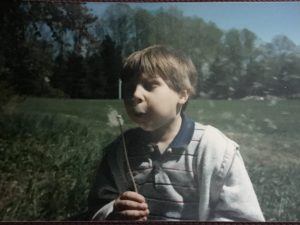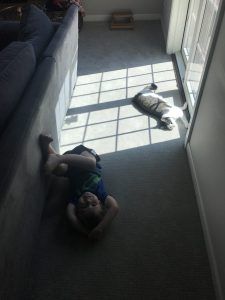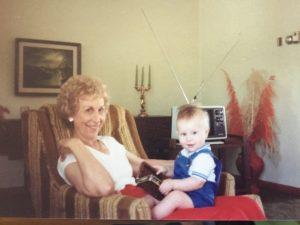by Max Sirak
 It turns out you learn a lot when you write a book. This may seem counterintuitive. Perhaps you think, “Well, that’s dumb. If you write a book about something you should already be an expert on it.”
It turns out you learn a lot when you write a book. This may seem counterintuitive. Perhaps you think, “Well, that’s dumb. If you write a book about something you should already be an expert on it.”
That’s a fair way to feel and thing to say.
However, my situation is slightly more unique. See, I don’t write books on subjects I’m an expert in. (I’m not even sure if such subjects exist.) My job as a ghostwriter is to help other people write books in their fields of expertise. It goes like this: most people spend their lives practicing and learning all they can in their fields. Then, after years of gaining proficiency, there almost inevitably comes a time for them to share their hard- won wisdom. The best way to do this, they figure, is to write a book.
That’s where I come in. Usually, the process of becoming a badass in a given field doesn’t entail much writing. Sometimes it does, certainly. But most occupations don’t involve a lot of “writing.” Paperwork? Probably. Reports to fill and file? Likely. But there’s where the pen stops.
So, most folks have spent all their time working toward being the best whatever-it-is-they-are, not writing. I, on the other hand, write every day. Which means, when it comes time for others to share what they’ve learned with the masses, I can help.
And that, friends, is why you are now being treated to a single, kidless guy’s thoughts on parenting.
Kids Are Kinda Like Cats
Have you ever noticed the more attention you want from a cat the less likely you are to get it? This seems to be a general rule (applicable to most cats most of the time, not all cats all of the time). It’s almost as if cats can smell your desire and choose to respond to it in the most feline way possible, “Meh.”
Toddlers are similar. Not that I think they are able to smell your cologne of desperation, but because of where they are at in their development. It turns out there are Stages of Play. And, the stage in which a tot finds themselves affects their overall interest in engaging with others.
The stages move from Individual to Parallel to Collaborative. Most children progress through the stages between the ages of two and four. During the Individual Stage a kid focuses on, you guessed it, their own little worlds. Whether they’re coloring or drawing or going on adventures with their “stuffies,” they don’t have much interest in other people. During the Parallel Stage a child shares physical space with others and plays near them, but not with them. The final stage, Collaborative, is when the interest in interacting and adding others to play emerges .
So – if your child, grandchild, nephew, niece, etc. happens to be in the Individual or Parallel Stages of Play – then there’s no amount of wanting their attention that will get you their attention. They aren’t interested in you. They’re learning their world.
Don’t take it personally. Hang out and let them be. And, if you’re lucky, in time, the little’n will wander over to spend time with you. Just like a cat.
Modeling Matters
There’s a reason you never hear the aphorism, “Monkey hear, monkey do.” That’s because aphorisms, by definition, contain kernels of truth. And every single one of us learns more from observing behaviors than we do from listening to words about behaviors. Hence, “Monkey see, monkey do.”
You are a social, storytelling, sense-making primate. Anatomically, you are constructed to mimic others. It’s through this mirroring and matching (thanks, neurons!) you learned how to operate in this mixed up, crazy world of ours. You watched the adults around you and learned from them.
This is how children learn.
Which means, the way you act and behave around kids is infinitely more instructive than what you say. I know. It sucks. It’d be way easier if you could act the way you wanted and use your words to tell the story of why you acted that way, why maybe it wasn’t the best way, and how there was another better way.
But that’s not how learning works. Which is super unfortunate, really. Because it means parents are always “on,” always teaching. Regardless if they want to be or not.
For example, say your daughter is four and she’s misbehaving at home. It’s a tough time for her. Her best friend just moved away. And, on top of the recent departure, she’s been dealing with a bully at daycare who likes to push and bite to get his way. Trying to be a good parent, you’ve explained to your daughter, time and again, violence isn’t the answer, the little boy is wrong, and there’s a better way to act. Then, in a moment of frustration, at wit’s end trying to get your daughter to listen and go to bed, you spank her.
Now you’ve sent a mixed message. On one hand, you’ve said words to her about the importance of not using violence to solve problems. However, with the other (much stronger) hand, you used violence in attempts to solve a problem.
Guess which lesson your daughter will take away.
Parents, your actions speak louder than words. Practice what you preach. Telling your child to do as you say, not as you do doesn’t work. Monkey see. Monkey do. Always.
Model the behaviors you want your children to learn.
Hide and Seek is Magic
Hide and Seek is incredible. The game is a social contract children use to build trust and secure attachments. It’s one of the first ways a kid begins to understand they are important and matter.
I know this may sound silly to us adults. “C’mon,” you say, “I feed and clothe and bathe and bend over backwards for my kid(s) on the daily. They are the center of my universe. I rearranged my life for them and I love them more than anything. How could they not know how much they mean to me?”
I get it. The amount of resources (time, energy, money, etc.) you devote to parenting should be telling enough because if you didn’t feel the way you do, you wouldn’t do all the things you do. And that’d be fine, if kids spoke that language. But they don’t.
Children don’t know how much things cost. They don’t know what your life was like before them. They can’t appreciate your sacrifices or grasp all you’ve given. This is the language of the adult world.
Children speak play.
Playing Hide and Seek demonstrates to a child, in their own language, that they matter, that you notice them and are paying attention. It’s as if in their young minds Hide and Seek is a test saying, “If this person cares about me then they’ll come find me.”
Part of the sheer joy and delight a kid experiences when you find them comes from their confirmation: They were right. You do care. They do matter. And they can trust you.
See What I Mean
I’m no expert on child development or parenting or play. But I have spent a year working closely with someone who is. Through the process of helping her collect, clarify, and organize her thoughts I picked up a thing or two. And, since it takes a village, I figured I’d pass ‘em along.
I mean, when’s the last time you got some parenting tips from an only child who’s never raised a kid a day in his life?
You’re welcome.
***
Max (ghost)writes. You can find him here if you’re so inclined.
